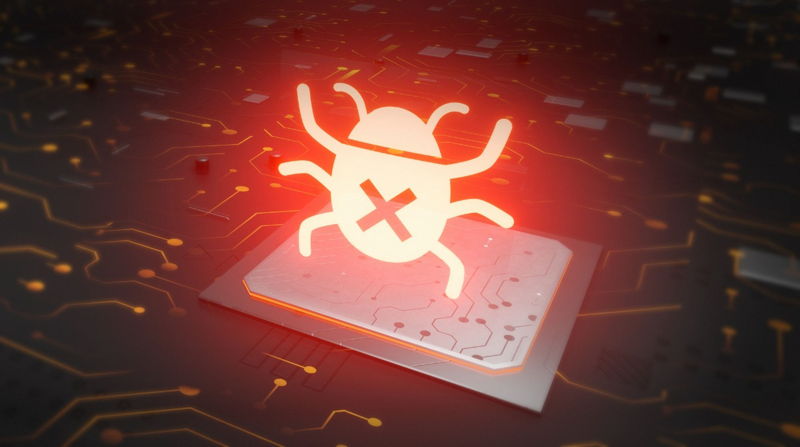Why You Should Never Use a Free VPN
What are the free VPN risks that have security folks raising their eyebrows these days? More importantly: why should you, regular internet user, actually care? Online threats keep getting trickier every year, and wrapping your head around free VPN dangers is now a must for anyone hoping to keep their digital life under wraps. Let’s dig into why a free VPN might actually do more harm than good and what steps you can really take to stay safe online. It’s not always as simple as it sounds.
1. What is a Free VPN? 2. Common Reasons People Choose Free VPNs 3. Understanding Free VPN Risks 4. Data Privacy Concerns with Free VPNs 5. How Free VPNs Compromise Your Security 6. Hidden Costs and Limitations of Free VPNs 7. The Threat of Malware and Tracking 8. Looking for privacy without the price tag? 9. Legal and Ethical Issues with Free VPNs 10. Safer Alternatives to Free VPN Services 11. Conclusion 12. Frequently Asked Questions
What is a Free VPN?
You’ve heard the pitch: a free VPN short for Virtual Private Network promises to let you browse privately and securely, all without paying a dime. Sounds good? Well, here’s the catch. Free VPNs almost always come with trade offs. Data caps, slow speeds, barely any servers to choose from. One example TunnelBear looks cute and is easy to use, but those using the free version get just 500MB of data a month. Yeah, not much. The zero cost, easy onboarding vibe is what pulls people in, especially if all you want is quick access to a blocked site or just a feeling of extra security. But, as you’ll see, there’s often more to the story.
Suggested Reading:
What’s the Difference Between Free and Paid VPNs?
Common Reasons People Choose Free VPNs
Why go for a free VPN at all? Common reasons pop up:
- Want to watch a show or game not available in your country? That’s geo restriction and free VPNs look like a ticket in.
- Some folks just want a sense of extra security, or at least the illusion of it, as they browse or use Wi Fi in public spaces.
- Money. For college students or anyone stretching their budget, “free” is hard to resist.
- Honestly, sometimes it’s just about tapping an easy “install” button and getting started. No setup headaches.
- Convenience who has the patience for complicated software anyway?

But these perks come bundled with a set of risks most people barely consider. Data privacy gets shaky, breaches happen, and yep those hidden costs start to show up in ways you might not expect. Maybe not immediately, but they’re there.
Understanding Free VPN Risks
Risk is baked into the free VPN experience, whether you see it or not. It can mean lost data, security holes, even malware that piggybacks on your connection. Remember that stat floating around? Over 70% of free VPNs carry malware, and a disturbing number quietly collect and sell your browsing details to whoever wants to pay. Puts things in perspective, doesn’t it? The next few sections break down what those risks really look like think data privacy nightmares, security gaps, and costs you never saw coming. It’s a lot to digest.
Data Privacy Concerns with Free VPNs
Here’s where things start getting messy. The worst kept secret: a lot of free VPNs make their money by collecting, storing, and then selling user data. Remember Hola? That service let just about anyone piggyback off your bandwidth, then sold it to whoever was interested. Some users found themselves on the hook for what strangers did using their connection. Scary, right? This isn’t just about annoying ads think identity theft, drained accounts, or your private info floating around online. All because you wanted a little more privacy, ironically.
Suggested Reading:
Free VPN vs Paid VPN: Is a Free VPN Safe Enough?
How Free VPNs Compromise Your Security
Your security takes a hit in a bunch of ways. Weak encryption, servers riddled with holes, or even malware sneaking in while you’re just trying to check your email. One user shared his story: he logged into a banking site via a free VPN, and days later, his financial info was gone. Even his reputation took a hit, as fraudulent activity was traced to his digital footprint. It’s not just about losing money sometimes the damage just lingers, quietly. Point is, picking a VPN isn’t just a checkbox. It’s your digital life on the line.
Looking for privacy without the price tag?
Looking for a VPN that won’t drain your wallet? Surfshark keeps you safe, lets you stream without limits, and protects your privacy—at a price you’ll love.
Hidden Costs and Limitations of Free VPNs
Free VPNs well, they aren’t exactly free. The “cost” just hides in a different place. Ads pop up everywhere, your data gets scooped up for profit, and the service slows your connection to a crawl. Take any typical free VPN: you’ll hit a data wall fast, get stuck with throttled speeds, or see whole server lists “reserved for premium users. ” In contrast, paying for a VPN usually means faster browsing, real privacy, and help when you need it. Not perfect, but the trade offs are clear.
The Threat of Malware and Tracking
Malware: that’s the big red flag. Many free VPNs are laced with viruses, spyware, or worse. One study found malware lurking in the apps themselves yep, the very thing meant to protect you. Imagine your passwords, photos, or work files leaking out because of a “security” app. Not a good feeling. Once malware’s in, it can wreck your device or quietly skim your data for months before you even spot it. Just a heads up it happens more than you’d think.

Legal and Ethical Issues with Free VPNs
There’s a legal and ethical gray zone here, too. Some free VPNs turn a blind eye to illegal activity piracy, copyright problems, even helping users dodge censorship laws. For example: certain VPNs have been caught funneling traffic for actions that most folks wouldn’t want linked to their name. The reality is, using sketchy services can put you at legal risk or even drag you into someone else’s mess. And, you guessed it, transparency is often not their strong suit. But users usually find out the hard way.
Safer Alternatives to Free VPN Services
So, what should you actually do? The safer route is pretty clear: pay for your VPN. Most paid services like NordVPN and Surfshark VPN toss in stronger encryption, better speeds, and actual customer support (imagine chatting with a real human when something’s wrong). One person I know switched from free to paid the difference? His connection got faster, streaming finally worked, and, for once, he didn’t have to worry about sketchy pop ups or privacy leaks. Sometimes, it’s worth skipping the hassle and just ponying up for the peace of mind.
Conclusion
The risks you run with free VPNs? They pretty much overshadow any benefit, especially if you’re serious about privacy. It’s easy to get lured by a price tag of zero, but the hidden dangers data leaks, malware, legal headaches can cost way more in the long run. Your digital presence is worth protecting. And if that means spending a few bucks? Well, that’s a small price for peace of mind. Stay sharp, keep reading, and don’t let a “freebie” wreck your online world. Not everything that glitters is gold, after all.
Frequently Asked Questions
What are the risks associated with free VPNs?
You’ll run into data privacy problems, security lapses, and yep those infamous hidden costs. These services often harvest your info, skip on proper security, leave servers exposed, and sometimes even infect your device. The short version? You’re not as safe as you think.
Can free VPNs be used for torrenting?
Some let you try, but it’s a risk. Many cap your data, monitor your traffic, or even sell your activity to advertisers. If you value privacy or don’t want your downloads cut off midway choosing a paid VPN makes a lot more sense for torrenting. Your call, but there’s danger in the details.
How can I protect myself from free VPN risks?
Best move: go with a trusted, paid VPN that’s upfront about what it does with your info. Always check the fine print, dodge anything that looks too good to be real, and remember reading reviews before downloading is never a waste of time.
What are the benefits of paid VPN services?
Paid VPNs usually mean stronger protection, faster speeds, and real support. You’ll get better peace of mind and a smoother browsing experience without weird pop ups or slowdowns. Not perfect, but a step up from rolling the dice with free services.
Can I use a free VPN for online banking?
Don’t risk it. Free VPNs can leave holes in your security, making your financial info an easy target. If you must use a VPN for sensitive stuff like banking, stick with a paid, reputable provider really, it’s not worth rolling the dice here.